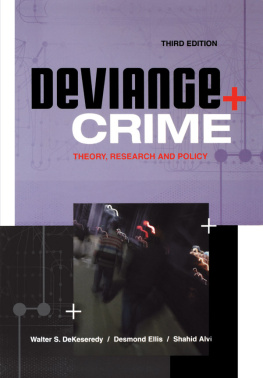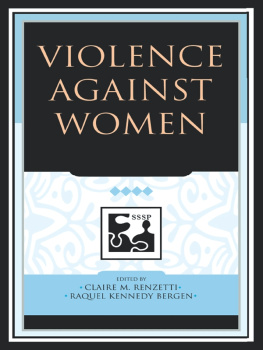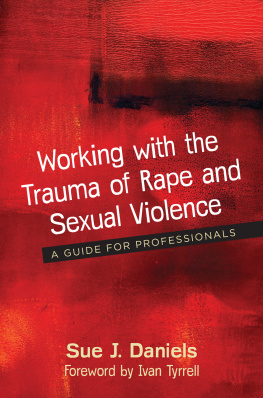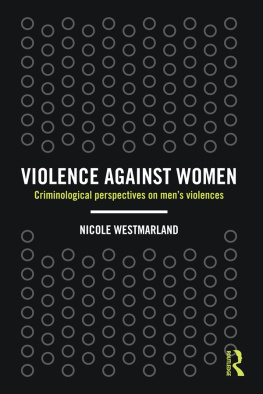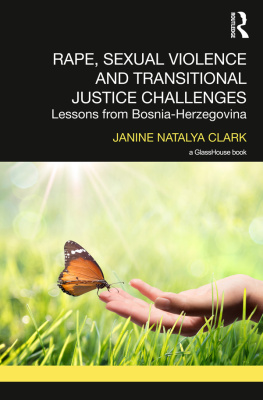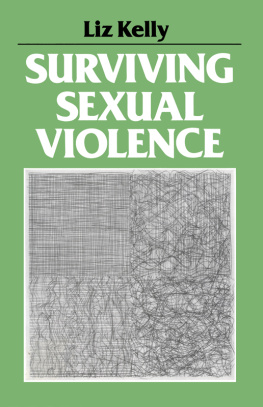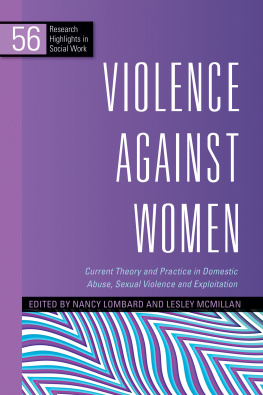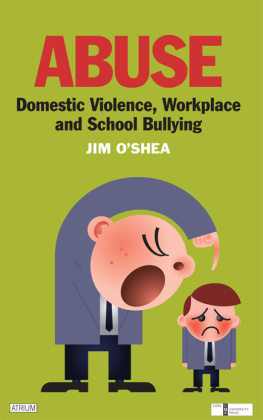Woman Abuse in Rural Places
This book chronicles key contemporary developments in the social scientific study of various types of male-to-female abuse in rural places and suggests new directions in research, theory, and policy. The main objective of this book is not to simply provide a dry recitation of the extant literature on the abuse of rural women in private places. To be sure, this material is covered, but rural womens experiences of crimes of the powerful like genocidal rape and corporate violence against female employees are also examined.
Written by a celebrated expert on the subject, this book considers woman abuse in a broad context, covering forms of violence such as physical and sexual assault, coercive control, genocidal rape, abortion bans, forced pregnancy, and corporate forms of violence. It offers a broad research agenda that examines the multidimensional nature of violence against rural women. Drawing on decades of work in the shelter movement, with activist organizations and doing academic and government research, DeKeseredy punctuates the book with stories and voices of perpetrators and survivors of abuse. Additionally, what makes this book unique is that it focuses on the plight of rural women around the world and it introduces a modified version of Liz Kellys original continuum of sexual violence.
An accessible and compelling read, this book will appeal to students and scholars of criminology, sociology, womens studies, cultural studies, policing, geography, and all those interested in learning about the abuse women face in rural areas.
Walter S. DeKeseredy is Anna Deane Carlson Endowed Chair of Social Sciences, Director of the Research Center on Violence, and Professor of Sociology at West Virginia University. He has published 26 books, over 100 refereed journal articles, and 90 scholarly book chapters on issues such as woman abuse, rural criminology, and criminological theory.
Routledge Studies in Rural Criminology
Edited by Joseph F. Donnermeyer, The Ohio State University
For a long time, criminological scholarship that focused on rural people and communities was lacking. Thankfully, those days have begun to wane, being replaced by a more vigorous intellectual examination of rural crime and criminal justice issues.
The Routledge Series in Rural Criminology is the first series dedicated to significant criminological and criminal justice issues affecting rural peoples and rural communities. It brings together rural criminology scholars across the world in order to actively apply, critique, and revise criminological theory. More than that, the books in this series show how the implications of their research are key for crime prevention, policing, and criminal justice policy in rural areas.
This series will highlight the best and most innovative research and theorizing in rural criminology. In doing so, it promises to be foundational in the development of this evolving field.
Rural Crime Prevention
Theory, Tactics and Techniques
Edited by Alistair Harkness
Woman Abuse in Rural Places
Walter S. DeKeseredy
Woman Abuse in Rural Places
Walter S. DeKeseredy
First published 2021
by Routledge
2 Park Square, Milton Park, Abingdon, Oxon OX14 4RN
and by Routledge
52 Vanderbilt Avenue, New York, NY 10017
Routledge is an imprint of the Taylor & Francis Group, an informa business
2021 Walter S. DeKeseredy
The right of Walter S. DeKeseredy to be identified as author of this work has been asserted by him in accordance with sections 77 and 78 of the Copyright, Designs and Patents Act 1988.
All rights reserved. No part of this book may be reprinted or reproduced or utilized in any form or by any electronic, mechanical, or other means, now known or hereafter invented, including photocopying and recording, or in any information storage or retrieval system, without permission in writing from the publishers.
Trademark notice: Product or corporate names may be trademarks or registered trademarks, and are used only for identification and explanation without intent to infringe.
British Library Cataloguing-in-Publication Data
A catalogue record for this book is available from the British Library
Library of Congress Cataloging-in-Publication Data
A catalog record has been requested for this book
ISBN: 978-0-367-44371-9 (hbk)
ISBN: 978-0-367-62845-1 (pbk)
ISBN: 978-1-003-00929-0 (ebk)
Typeset in Bembo
by Deanta Global Publishing Services, Chennai, India
Contents
Woman abuse is by no means a modern-day phenomenon. There is plenty of documentary evidence from the ancient world onwards to show that women have always suffered abuse from intimate male partners. Today we are confronted with the knowledge that at least one in three women will encounter male violence in the home at some point in their lives, one in ten during the course of a year and that it causes the deaths of three women a day in the United States, two women a week in the UK. Figures that, at the time of writing, are worsening as women are having to stay-at-home with their abusers as a result of the COVID-19 crisis: an order that reveals a lack of recognition that for many women the home is not a safe haven in which to shelter and keep the dangers of the world at bay. In Woman Abuse in Rural Places, Walter DeKeseredy, a leading expert in the field, reminds us, as these figures illustrate, of how little progress has been made in fulfilling one of the central goals of feminism freedom for all women from intimidation by the threat or use of male violence, first pledged at the Womens Liberation Conferences held in the UK in the 1970s. Yet, at the same time, he illustrates the immense strides that have occurred in the way that woman abuse is conceptualized and understood, especially in terms of specific contexts and locales. The work of feminist, especially black, postcolonial and critical, scholars and activists who place difference and the impact of multiple systems of oppression at the forefront of their analyses has given voice to women who were previously marginalized or left out of debates. The necessity of avoiding a monolithic approach and to research and document how, for example, gender, race, immigration status, class, culture, and sexuality frame the lives of women experiencing abuse from men has moved to the forefront of discussion. As scholars/activists point out, there is no one size fits all when it comes to woman abuse and policies and strategies for change need to reflect this.
Woman Abuse in Rural Places is undoubtedly an important book in providing a focus on the experiences of rural women, whose stories resonate throughout the text, but also for showing the necessity of maintaining critical debate about how we define abuse, the theoretical models that are used and the concepts, methods, and assumptions which frame the subject of woman abuse. The necessity of situating experience becomes obvious as attention is drawn to differences in incidence and prevalence rates of abuse, social support mechanisms, isolation, community pressures and attitudes, and how male peer support functions. As a discipline, the traditional focus of criminology has been on urban environments and the Global North, which has meant huge gaps in knowledge and a stranglehold on ideas and how ideas are translated into practice in the Global North and parts of the Global South. Woman Abuse in Rural Places , thus, functions as a much-needed foundational text bringing together as it does developments in the emerging field of rural criminology with feminist sociological theorizing and research on woman abuse. Yet it is much more than this, for DeKeseredy pushes us into relatively unexplored territory.


